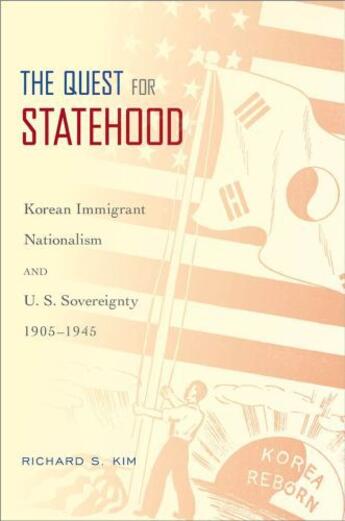-
Nombre de pages : (-)
-
Collection :
(-)
-
Genre :
(-)
-
Thème :
Non attribué
-
Prix littéraire(s) :
(-)
Résumé:
Honorable Mention, Book Award in History of the Association for Asian American Studies.
In this book, Richard S. Kim examines the central role played by immigrants in the independence movement that sought to liberate Korea from Japanese colonization. Regarding Japanese rule as illegitimate,... Voir plus
Honorable Mention, Book Award in History of the Association for Asian American Studies.
In this book, Richard S. Kim examines the central role played by immigrants in the independence movement that sought to liberate Korea from Japanese colonization. Regarding Japanese rule as illegitimate, Koreans in and out of the Korean peninsula viewed themselves as a stateless people. Their independence activities had to be carried out from abroad, creating conditions for the emergence of a diasporic nationalism. Using English and Korean language sources, Kim traces how Koreans in the United States articulated visions of national sovereignty, drawing particularly on American political rhetoric and symbolism, and increasingly relied on U.S. state power to mobilize international support for their cause. Their efforts to establish an independent homeland necessitated their participation in civic and political activities in the United States, engaging in organizational activity that led to the development of an ethnic consciousness and paradoxically established them as an American ethnic group. Ultimately, Kim argues, homeland nationalism was central to the assimilation of Korean immigrants as American ethnics, even as they were denied U.S. citizenship.
Donner votre avis








